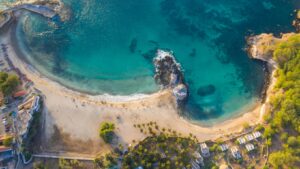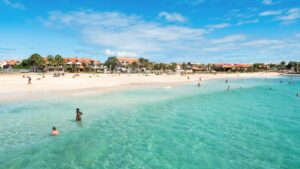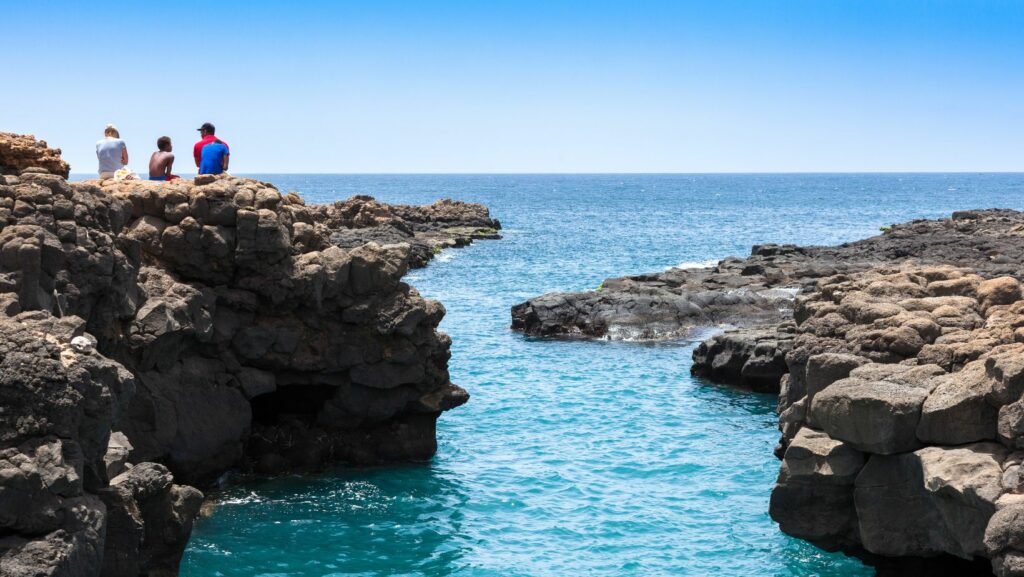When one thinks of Africa, images of vast savannahs, towering mountains, and bustling cities come to mind. But there’s another side to this diverse continent that’s often overlooked – its stunning islands. Each one a unique paradise, they’re filled with rich cultures, vibrant wildlife, and breathtaking landscapes that are just waiting to be explored.
Islands Of Africa
Segueing from Africa’s vast savannahs and towering mountains, we delve into the continent’s bewitching islands.
The Allure of African Islands

Renowned for their sheer beauty, the islands of Africa captivate travelers’ hearts, offering a once-in-a-lifetime experience unlike any other adventure destinations across the globe. They showcase an intriguing mixture of pristine beaches, turquoise blue sea, and lush green forests. Painted by the palette of nature, the African islands boast of an ecosystem that is a perfect mix of flora and fauna. Seychelles, for instance, home to the heaviest land tortoise in the wild, catches the eyes of nature lovers. The harmonious blend of human and wildlife habitation is a signature trait of these islands.
Diversity and Distinct Characteristics
African islands are not a monolith; they revel in diversity. Each island features distinct characteristics, setting it apart from its brethren. Madagascar, the fourth largest island globally, is renowned for its biodiversity, housing many species that don’t exist elsewhere on earth, such as lemurs and the stunning baobabs. On the other hand, the islands of Cape Verde are a music lover’s dream, encoding the African and Portuguese influences in the rhythm and melody of its traditional music, Morna. This diversity manifests itself not only in physical characteristics and wildlife, but also in culture, cuisine, and lifestyle. This varying landscape combined with a rich mosaic of cultures contributes to the islands’ charm, making them a must-visit wonder on any traveler’s list.
Madagascar The Giant Amongst African Islands
Madagascar occupies the title of the largest African island, presenting a diverse blend of unique ecosystems, rare species, and rich cultural heritage. Befitting its considerable size, the island exhibits an array of terrains, from emerald-green paddy fields to desolate desert regions, all interspersed with lush rainforest habitats.
Wildlife Wonders of Madagascar

Garnering global recognition, Madagascar’s wildlife represents 5% of the world’s flora and fauna, with approximately 80% of its species found nowhere else on the planet. Lemurs, the glorified mascot of Madagascar, exemplify this uniqueness in diversity. Visitors might encounter up to 105 different species, including the wide-eyed nocturnal Tarsiers or the aye-aye, known for its agile, skeletal middle finger. Another renowned inhabitant is the Fosa, Madagascar’s most prominent predator, encountered rarely due their largely nocturnal and solitary lifestyle.
Madagascar’s marine life matches the diversity of its terrestrial counterparts. Coral reefs border the island, serving as home to multicolored tropical fish, sponges, and molluscs. Additionally, entrancing rarities such as humpback whales, sea turtles, and many types of dolphins grace Madagascar’s waters.
Cultural Tapestry and Heritage
Simultaneously, Madagascar’s population contributes to the island’s vibrant tapestry with a remarkable cultural diversity. A delightful blend of Austronesian, Bantu, Arab, Indian, and European influences is reflected in its people, traditions, and cuisine. Music, an integral component of Malagasy culture, combines unique instruments like the valiha – a tube zither made from bamboo – with powerful vocals, creating a captivating rhythm that encapsulates the island’s zest for life.

Food in Madagascar manifests the island’s diverse heritage in arguably the most delectable manner. The Malagasy cuisine, characterized by rice served with a wide variety of meats, fresh fruits, and vegetables, showcases influences from Africa, Europe, and Asia. Piquant spices and fresh ingredients ensure every meal is a tribute to the island’s rich history.
Throughout the island, one can encounter remarkable architectural homages to its past. The Royal Hill of Ambohimanga, a UNESCO World Heritage Site, stands as a testament to Madagascar’s historical rulers and their influence on its society.
Conclusion
Africa’s islands aren’t just land surrounded by water; they’re unique paradises teeming with life and culture. Seychelles, Madagascar, and Cape Verde each offer distinct experiences, from wildlife encounters to musical revelations. They’re places where biodiversity thrives and cultures intermingle, creating a tapestry of experiences for travelers.
